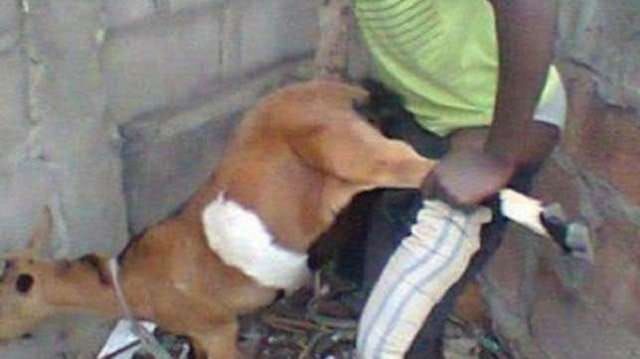By Twink Jones Gadama
In a small village nestled deep within the beautiful district of Ntchisi, Malawi, a shocking incident has left the community in disbelief and horror.
Vincent Mwale, a 26-year-old man, has been arrested for engaging in the abhorrent act of bestiality, having sexual relations with a goat.
This despicable act has shed light on a taboo subject that lurks within society’s darkest corners.
As we dive deeper into this shocking incident, we unravel the psychological complexities, social stigma, and legal implications surrounding such acts in Malawi.
The Incident and Its Aftermath
On the fateful day of 25th January 2024, the peaceful serenity of Galang’ande village was shattered when Vincent Mwale was caught in the act of bestiality.
The locals, who could not believe their eyes, immediately reported the incident to the authorities, leading to Mwale’s subsequent arrest.
However, what shocked the community even more was the revelation that this was not Mwale’s first offense; he had previously engaged in such behavior.
As the news spread like wildfire, the villagers, already grappling with fresh trauma, demanded justice.

Delving Into the Psychopathology of Bestiality
To truly comprehend the mindset behind such an inhumane act, it is crucial to delve into the psychological depths of the individuals involved.
Psychologists and experts in the field explain the complexities involved, citing various theories such as the manifestation of latent fantasies, abnormal sexual preferences, and the presence of deep-seated psychopathological factors.
While a majority of society cringes at the thought of bestiality, examination of the underlying psychological motivations allows us to better understand the inherent darkness that fuels such acts.
A Moral Quandary: Cultural and Social Perceptions
In a conservative society like Malawi, bestiality is seen as a gross violation of cultural and social norms.
The deeply rooted beliefs regarding the sanctity and dignity of both human beings and animals lead to a vehement rejection of such practices.
However, societal perceptions drive individuals like Mwale further into the shadows, forcing them to partake in these unthinkable acts shrouded in secrecy and shame.
Unraveling the complexities of cultural stigmas, we explore the challenges faced by individuals grappling with suppressed desires and the consequences of their actions.
The Legal Landscape of Malawi: Outlawing Bestiality
In Malawi, both bestiality and homosexuality are considered criminal offenses.
The laws in place reflect the prevailing moralistic values of the society, aiming to safeguard societal and moral order.
The penal code not only condemns such acts but also details severe punishment for the perpetrators.
However, as we examine the legal landscape, questions arise regarding the efficacy of the punitive approach.
Advocates argue that there should be a greater focus on rehabilitation, psychological intervention, and education to address the root causes of such deviant behavior.
Conclusion
As the shocking incident in Galang’ande village illuminates the dark practice of bestiality within Malawi, it demands introspection and a reevaluation of societal attitudes and legal frameworks.
The spotlight now shines on this repugnant act, unraveling the psychological complexities, social stigma, and legal implications surrounding it.
It is imperative that we confront these uncomfortable truths and engage in a frank discourse, not only to protect our communities but also to understand and address the underlying factors that drive individuals toward such abhorrent behavior.
Only then can we hope to protect the sanctity of life, whether human or animal, and seek solutions to help those who may be trapped in the shadows of their own desires.


